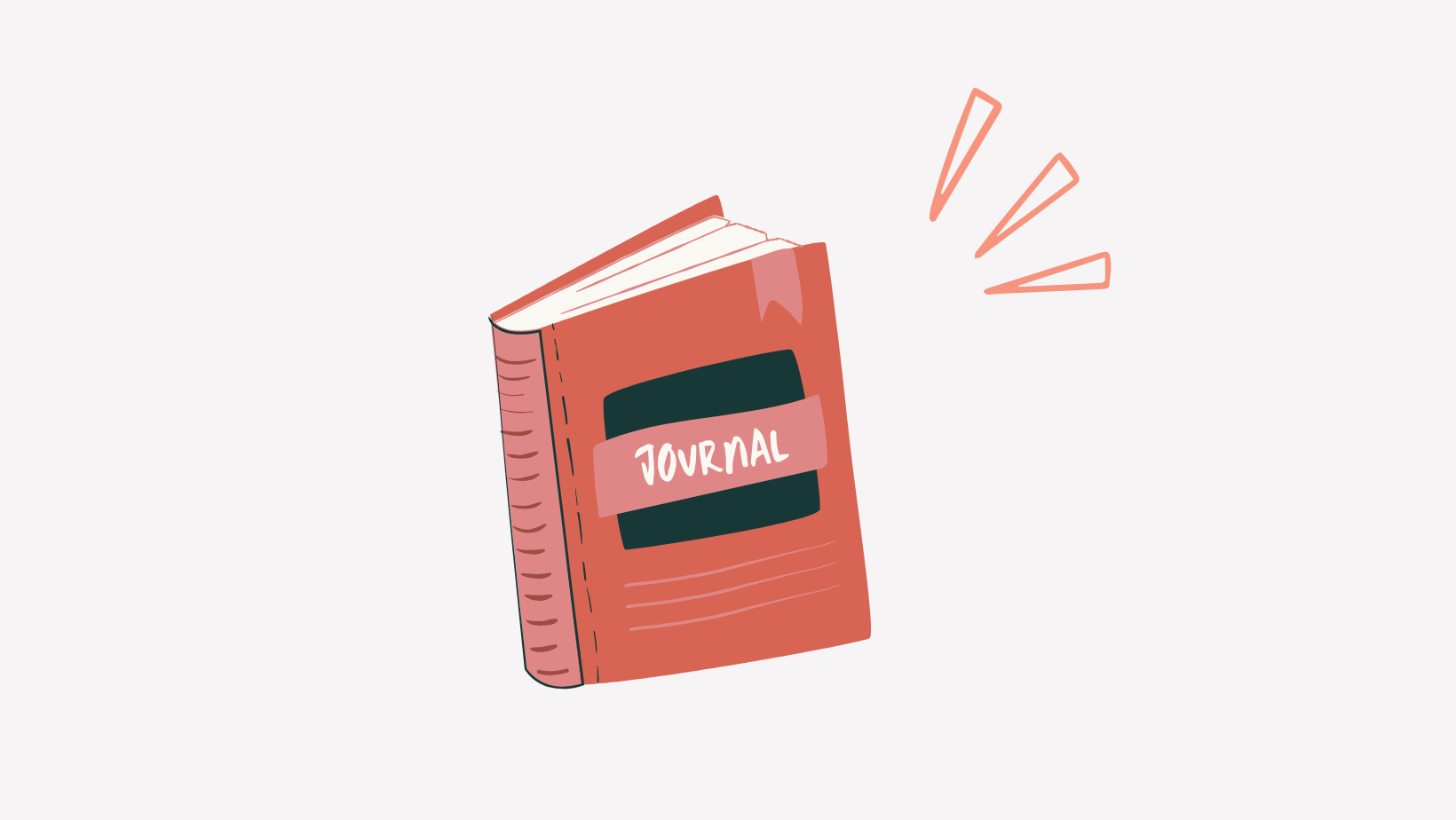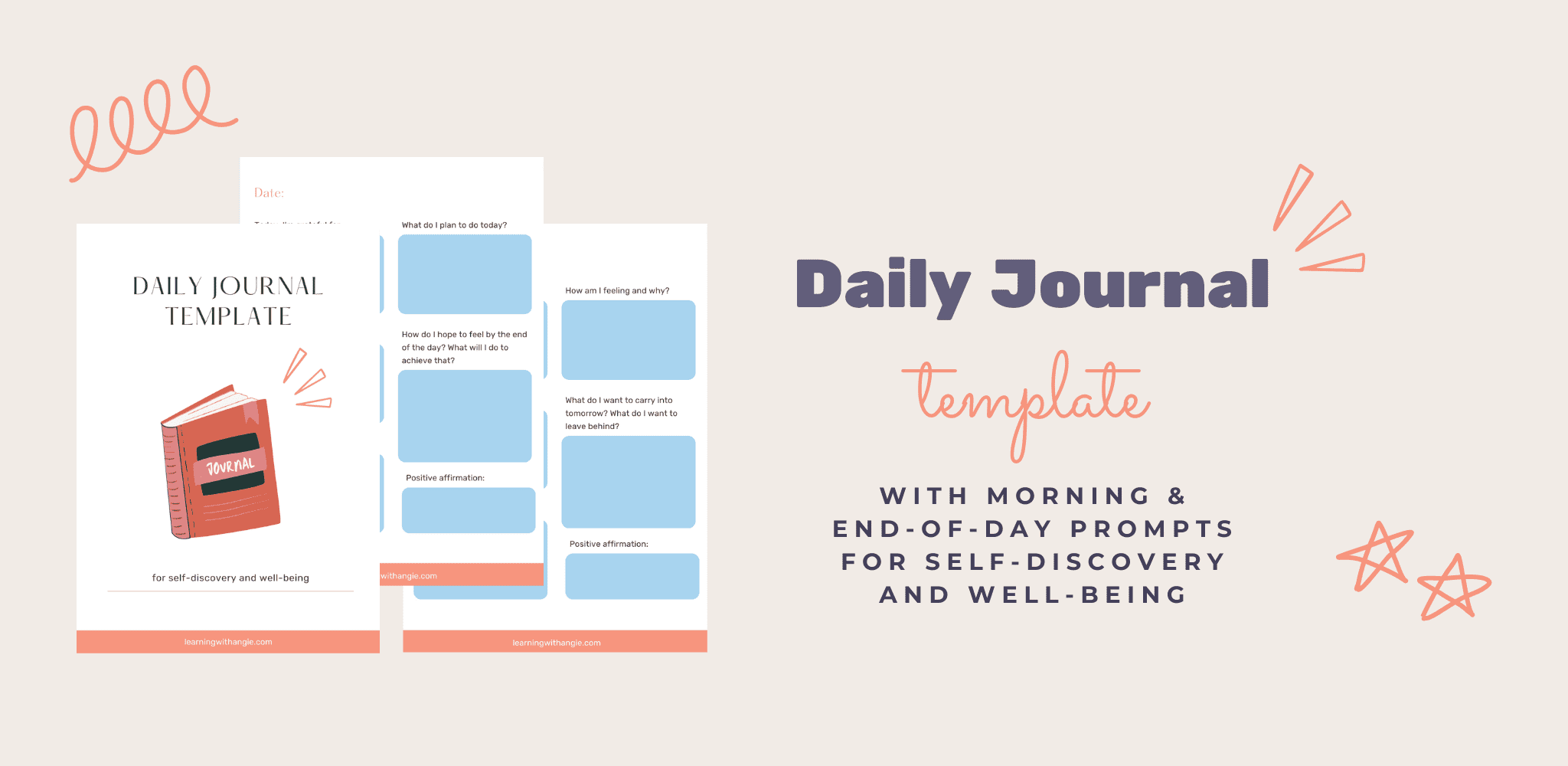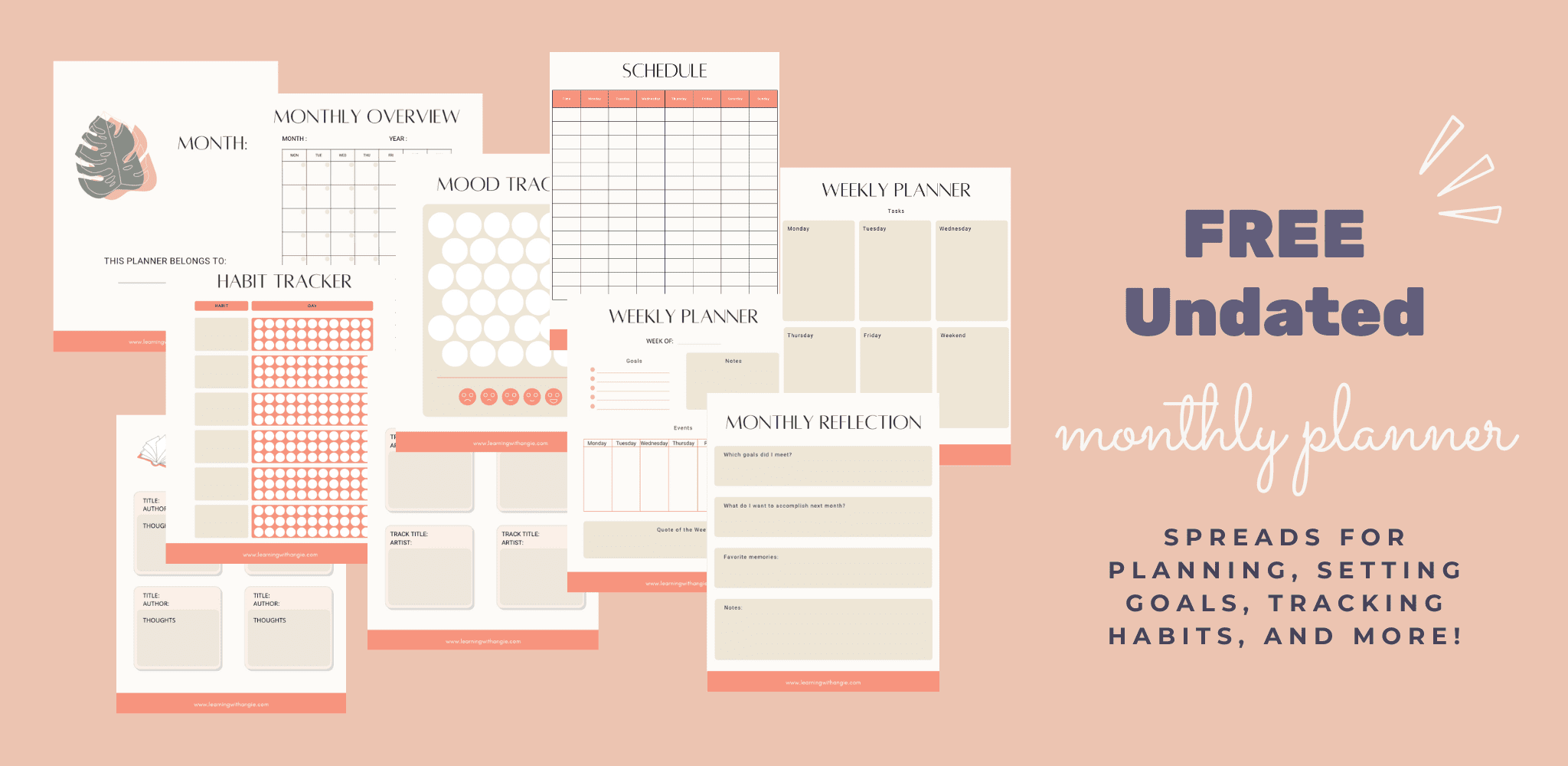

If you’re reading this, you may have already heard about the powerful benefits of journaling. Maybe you’ve even tried journaling but stopped because it felt like a tedious chore. You probably thought, “Hmm”¦ maybe journaling just isn’t for me.”
Well, I’ve been in the same place. In the past, I tried journaling regularly but failed because I didn’t see the point in doing it. However, that was because I wasn’t journaling the right way.
Since then, I’ve fixed the journaling mistakes I made and learned how to journal for self-growth. By journaling regularly, I’ve experienced many significant benefits including the following:
- I’ve come to understand my strengths and weaknesses better.
- I’ve learned to analyze and manage my emotions better.
- I’ve been able to hold myself accountable for work and personal goals.
- I’ve been able to sleep better.

In this article, I share helpful journaling tips so you can learn how to journal for self-growth and self-improvement as well. At the end, you’ll also find a free self-growth journal template that you can use.
But before we get there, please make sure to read my journaling tips thoroughly, so you don’t make the same mistakes I did. When done wrong, journaling can be tedious and pointless. However, when done right, journaling can truly transform your life. To find out how to achieve this, keep on reading!
This post may contain affiliate links, which means that when you make a purchase through a link, I make a small commission at no extra cost to you.
Journaling Tip #1: Find a journal that you love
If you want to start journaling for self-growth, you must find a journal that you love. If you use a journal that doesn’t suit your aesthetic or is inconvenient to use, you won’t be motivated to journal. Eventually, journaling will feel like a chore.
Your journal can be physical or digital. In the past, I used a physical journal but found that I got way too concerned with aesthetics””my handwriting, cute doodles, etc. Therefore, journaling became a time-consuming, stressful task.

Using a Physical Journal
I’m not saying that you shouldn’t use a physical journal. If you love the feel of pen-and-paper and aren’t as concerned about aesthetics as I am, you may love having a physical journal.
I’d recommend something that’s lightweight, has an index, and comes with a penholder. That way, you’ll be able to carry it with you anywhere. My personal favorite is the Minimalism Art A5 Dotted Notebook, which comes with all of these features. They also have a B5 Notebook, which is larger and comes in the dotted, ruled, plain, or squared options.
Using a Digital Journal
Since journaling in a physical notebook didn’t work for me, I’ve switched over to using a digital journal. After seeing tons of productivity bloggers, YouTubers, and social media influencers talking about Notion, I decided to give the platform a try.
I absolutely love it now and use it as an all-in-one workspace. My Notion setup contains pages to organize different aspects of my life, and one page is dedicated to journaling. On this page, I created a database to store all my journal entries. To add a new entry, I just click the “New” button and can immediately begin writing.
Additionally, I created a “Daily Journal Entry” template in the database. Every time I create a new entry, I click the template button to populate the space with the template. Then, I just fill it in.

my journal setup in Notion
No matter what digital platform you use to journal, it should be easy to access, use, and organize. That way, you can focus on the actual journaling, not the technical details involved.
Journaling Tip #2: Write about what you’ve accomplished
I prefer journaling at night and like to write down everything I accomplished during the day. Recognizing the work you’ve done and rewarding yourself for it””even if it’s just allowing yourself to feel proud””is extremely important.

Being kind to yourself
Before I started journaling, I would focus only on my shortcomings. I would beat myself up about less productive days and constantly feel dissatisfied. However, once I started taking time to consciously recall my accomplishments, I began experiencing greater satisfaction at the end of every day.
To achieve personal growth, you can’t just criticize personal shortcomings. Yes, it’s important to recognize your mistakes and weaknesses and work on them. However, as Jay Shetty says in his book Think Like a Monk, it’s just as important to praise yourself.
If you were raising a child, you wouldn’t constantly criticize the child. You would also provide encouragement and praise. In the same way, you need to praise yourself for daily accomplishments to develop a healthier relationship with your mind.

Critique and praise yourself as you would a child. It’s important to be considerate towards yourself.
Holding yourself accountable for goals
At the beginning of each week, I set weekly goals. Each day, I document my progress toward these goals.
In doing so, I hold myself accountable for achieving these goals (because let’s be real, writing down a goal means nothing if you don’t create a plan to achieve it and keep track of your progress).

Additionally, writing down your progress will make it seem more tangible. Consequently, you’ll feel more motivated to continue making progress.
You may also like “9 Guaranteed Ways to Overcome Procrastination”
Journaling Tip #3: Practice self-reflection
In order to start journaling for self-improvement, you must practice self-reflection. To do this, you should first ask yourself: “How am I feeling today?” Then, you should try to understand why you feel the way you do.

By doing this, I’ve become more attuned to personal strengths and weaknesses.
Additionally, I’ve learned to figure out what works for me and what doesn’t. This has enabled me to incorporate routines into my schedule that bring me greater joy and motivation.
Analyzing positive emotions
Let’s say you’re feeling quite content at the end of the day. Ask yourself why you’re feeling that way. Is it because you got to reconnect with friends? Is it because you got everything done on your to-do list? If so, how did you manage to get everything done without exhausting yourself? Was it because you remembered to take breaks while working?

If you had a good day, write down the things that made you feel satisfied and happy. Try to incorporate those things into your routine more frequently.
Analyzing negative emotions
On the other hand, let’s say you’re feeling a bit down. Was it because you didn’t get as much done as you wanted to? If so, why did this happen? Or perhaps, someone in your life has been causing you distress. If so, what should you do about the situation?
Keep asking questions until you get to the root of your negative emotions. That’s because confronting the cause is the only way to get rid of them. If you ignore negative emotions, they will continue to fester and become a subconscious daily burden.

Journaling Tip #4: Write about your plans
To journal for self-growth, you should also write about your plans. What do you intend to accomplish the next day? What do you intend to accomplish by the end of the week?
Write down realistic plans so that you’re more likely to stick to them.
Improving Sleep Quality
Typically, I write down my plans for the next day. If something new comes up that I want to get done, I’ll make a quick note in my journal like: I want to accomplish “X” by the end of the week.
Before doing this, I would have trouble falling asleep because my thoughts would be spinning about work.

However, by writing down everything I intend to accomplish the next day, I detach myself from work before going to bed. Since I already know what I need to do, there’s no point in thinking about it anymore.
Sometimes, an idea comes to me right before I get into bed. If this happens, I grab a pen and sticky note (which I keep in my bedroom) and quickly jot it down. This way, I don’t have to worry about forgetting it.
Our brains are made for having ideas, not remembering them. Unfortunately, our propensity to forget things causes us lots of stress. By writing down all your ideas and plans in a journal, you relieve yourself of this stress.

You may also like “11 Before Bed Journal Prompts for Better Sleep & Productivity”
Journaling Tip #5: Keep track of healthy habits
Keeping track of healthy habits is essential for self-growth because it keeps you accountable for following them.
Using a habit tracker
I use a habit tracker to keep track of most of my habits. In Notion, I created a separate page for this. Each day, I check off boxes for the habits I achieved.

Elaborating on habits
There may be some habits that you want to elaborate on more. For example, you may be working on being more active. In your journal, you could write about what kinds of physical activity you did on a given day.
Or, you may be working on being more appreciative of the small things. Then, you could write about three things you’re grateful for each day.
These may feel like small things, but small steps add up in the long-run to make a big difference!
Journaling Tip #6: Add motivating personal elements
To journal for self-growth, you should associate your journal with positivity. Journaling Tip #1″”choosing a journal that you love””is the first step towards achieving this. The next step is to add motivating personal elements.
By this, I mean pictures, quotes, words, or anything else that brings you joy and motivation. In my journal entries, I include a picture I took during the day to remind me of something positive that happened. Additionally, I include an inspirational quote and a new word I learned.

Journaling Tip #7: Don’t feel obligated to journal everyday
To journal effectively, you don’t need to journal everyday. In the past, I felt like I had to journal every day at the same time. However, this was a flawed mindset that made journaling feel like a chore.
Although journaling is a habit that you should stick to as regularly as possible, you shouldn’t force yourself to journal when you don’t want to. Some days, I don’t feel like journaling at all. Therefore, I don’t journal on those days, and that’s absolutely okay!

Also, you shouldn’t feel obligated to journal at the same time every day. Sometimes, I feel the sudden urge to write down my thoughts in the middle of the day. When these moments happen, I open my Notion app as soon as I have a chance and create a new journal entry.
Following your intuition
In essence, journaling should be something that you want to do. To make this happen, you need to make it a regular habit. After all, only by reaping the benefits of journaling will you feel motivated to continue journaling.
However, you shouldn’t journal when you don’t feel motivated or don’t feel the need to. Forcing yourself to journal at these times will cause you to associate negative feelings with journaling””this is counterproductive.
In short, follow your intuition when it comes to journaling. Journal whenever and however often as suits your needs. Then, it will become something you look forward to instead of being another mundane task in your routine.
Final Takeaways on How to Journal for Self-Growth
Journaling can be an extremely powerful tool to promote self-growth. However, to maximize its potential, you must avoid certain journaling mistakes. These include using a journal that is inconvenient or forcing yourself to journal when you don’t want to.
Additionally, you should consider the following personal growth journal prompts in your entries:
- What did I accomplish today?
- How do I feel today? Why do I feel this way?
- What do I plan on doing tomorrow? What do I plan on doing for the rest of the week?
- How am I doing on developing healthy habits?
Asking yourself these questions will help you develop greater clarity in your life and become a more positive, motivated individual. To help you begin your journey toward self-growth and self-discovery, check out my daily journal template.
For more on self-growth and journaling, make sure to check out these posts:

Learning With Angie is a place to share honest, unfiltered advice to promote student success. So if you’re a student (high school, college, or beyond) looking for tips on productivity, studying, personal growth, and more to reach your potential, this is the place! To read more about Learning with Angie, click here.




















These are some great tips right here – super useful! Thankyou for posting.